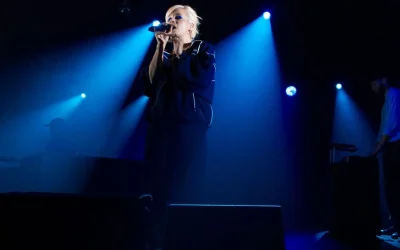The Seventh Circuit Court of Appeals recently reversed a lower court decision in a class action lawsuit against the National Collegiate Athletic Association (NCAA) and Ticketmaster that could jeopardize the pair’s long-standing practice of holding lotteries for Final Four tickets.
The decision does not necessarily mean the NCAA and Ticketmaster must stop holding ticket lotteries, but two of three Appeals Court judges who heard the appeal voted to return the case back to the U.S. District Court in Indiana, where it had been dismissed. But, by requiring more scrutiny of the practice, which the two had been utilizing since at least 1994, the appeals decision possibly could result in the two having to find a new way to distribute tickets to the sold-out event. In addition, it also could challenge how other sports leagues, teams or concert acts that use ticket lotteries distribute those tickets to popular events.
In 2008, several plaintiffs filed a lawsuit in Indiana, where the NCAA is headquartered, claiming the two entities operate an illegal lottery for Final Four tickets because the two are not sanctioned to hold lotteries by the state or federal government. The two operate the lottery due to the demand for Final Four tickets, and require fans to pay in advance for several tickets and then winners are selected randomly. The losing entrants are later refunded the price of their tickets, minus the service fee, which can be $6 or more per ticket.
Therein was the rub for the plaintiffs; not only was the NCAA receiving money upfront, which it could use for its own benefit, it also was generating additional revenues by holding onto the service fee, even though the plaintiffs claimed the fees exceeded the NCAA’s cost of service.
“Here, Plaintiffs allege they were required to invest the additional ‘service fee’ or ‘handling fee’ of six to ten dollars per ticket or entry, which bears no relation to the NCAA’s actual cost in administering the ticket-distribution process and was not refunded. Win or lose, the service fee was forfeited by all entrants and retained by the NCAA,” the Appeals Court decision stated, adding later that the plaintiffs “have sufficiently alleged that the NCAA operated an unlawful lottery.”
Because thousands of people enter the NCAA lottery for tournament tickets each year, the NCAA could potentially lose tens of thousands of dollars in revenue. The lotteries are not only held for men’s basketball tournament, but also the women’s basketball tournament and the men’s hockey Frozen Four, among other NCAA championships.
“This is a case that primary ticket sellers will have to watch, because it concerns how they distribute tickets,” said Chicago attorney John Moore, who is not involved in the lawsuit but who represents secondary ticket companies. “For lotteries of sold out events, those service fees may need to be refunded in the future.”


